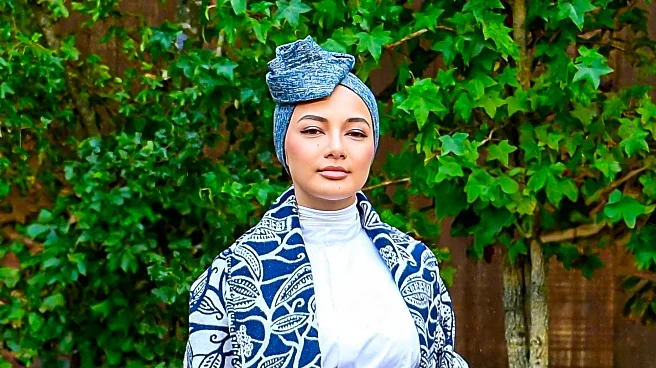What's Happening?
Mayci Neeley, known for her role in the reality TV series 'The Secret Lives of Mormon Wives,' has released her debut memoir titled 'Told You So.' The book provides a detailed account of Neeley's life before
her television fame, including her surprise pregnancy at 19, the tragic death of her unborn child's father, and her experiences as a Division I tennis player. A significant portion of the memoir focuses on Neeley's abusive relationship with a man she met at a Mormon dance, which involved possessiveness, violence, and manipulation. The memoir also touches on Neeley's struggles with depression following the death of her partner, Arik, and her journey towards healing and stability.
Why It's Important?
Neeley's memoir sheds light on the complexities of young womanhood, particularly within the context of faith and personal trauma. It offers a candid look at relationship violence and the challenges faced by women in abusive situations, highlighting the importance of support systems and policy changes, such as BYU's revised honor code policy that protects assault victims from investigations. The book also contributes to discussions on gender and religion, providing insights into the lives of women navigating traditional roles while pursuing personal ambitions. Neeley's story is a testament to resilience and the multifaceted nature of identity, offering valuable lessons for readers, especially young women.
What's Next?
The release of 'Told You So' may prompt further discussions on the portrayal of women in media and the importance of sharing diverse narratives. Neeley's experiences could inspire other women to share their stories, potentially leading to increased awareness and advocacy for victims of relationship violence. The memoir's reception might also influence future projects for Neeley, both in literature and television, as she continues to explore themes of faith, motherhood, and entrepreneurship.
Beyond the Headlines
Neeley's memoir not only provides a personal narrative but also serves as a cultural commentary on the intersection of gender, religion, and societal expectations. It challenges stereotypes associated with Mormon women and offers a nuanced perspective on the balance between personal faith and individual freedom. The book's exploration of trauma and recovery may contribute to broader conversations about mental health and the importance of accessible support for those in crisis.








